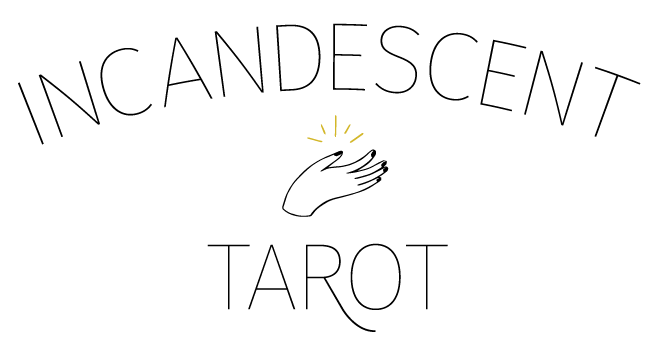Learning Tarot: "When Will I Memorize All These Cards???"
So you've just started learning tarot. The images and symbols are fascinating and you're captivated potential for self-discovery and exploration. The cards look somewhat familiar, kind of like a deck of playing cards. But wait - there's twenty two more cards, plus extra court cards? "How on earth will I memorize all this?" you might ask.
Sitting down before a full deck of tarot cards can be daunting when you're first learning. I've been there - you want to jump right in and do lots of readings! Without having to consult the book (or books and websites) you've been reading. Add to that the many different interpretations for each card and we have a recipe for overwhelm.
But before you get frustrated I want to let you in on a little secret. I've been reading tarot for over half my life now and I still don't know all the meaning to the cards. Of course I'm proficient in each and can string them together in a plethora of ways, but I will never know everything about tarot. And want to know something else? That's what I love most about it.
Tarot is both a system of divination with a rich history and a constantly growing field. Meanings are created, shed, and reformed constantly. The topography is always changing and each reader discovers new meanings and connections throughout their practice.
You might be thinking, "well, thanks, that's not reassuring at all," and I get that. Tarot's fluid nature can be frustrating, especially since we're used to certainty and mastery. We're accustomed to having someone plop a few books down in front of us, give us a clearly outlined course of study, and, once we've grasped all of that, provide us with a diploma or certification at the end.
I'd like to invite you to step away from this framework when it comes to your tarot studies. There's something comforting in the endless potential in the cards. It's not our goal to be come the absolute expert of tarot (besides, that's impossible), but to become fluent in its language. Embracing tarot as a journey can be immensely freeing. It's not our goal to memorize ourselves into expertise, but rather to be open to all forms of meanings - traditional, esoteric, intuitive, and personal - and engage with tarot in the moment, as an art form and not rote memorization.
In other words, we can free ourselves from the expectation that we'll "know it all," especially when we start learning. Without this baggage of expectation, it's a lot easier to explore and have fun when we approach the cards.
I also think this opens us up to experimentation. Sure, book leaning is richly rewarding, but it doesn't touch the true depth of tarot readings. That only comes through practice. Supplement your studies with real life readings, whether they're for yourself, others, or both. You'll be surprised to find that your familiarity with the cards grows quickly this way, even without you realizing it. Think of it as the experience of reading "six of cups: nostalgia, warm feelings, tender relationships," in a book versus having the card come up for a friend reconnecting with their childhood confidant. I bet the second will stay with you much longer, giving you an experience to tie the meaning of the card to as you read in other situations.
So relax and open yourself up to the ever-expanding world of opportunity within tarot. You'll become comfortable with each and every card in the deck over time. Until then, engage with them creatively, using both books and your own experiences. If I can say one thing about tarot it's that it's never boring. You have a lifetime worth of discovery ahead of you so throw the pressure and desire to rush forward out the window and relax into the exciting world of the cards.

